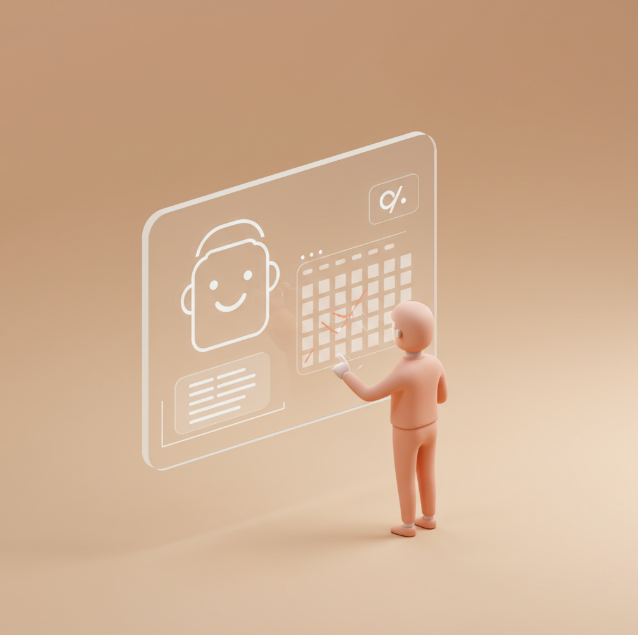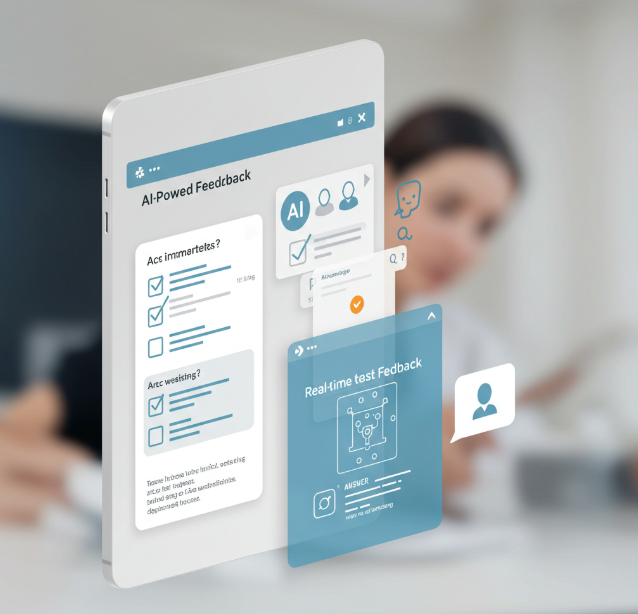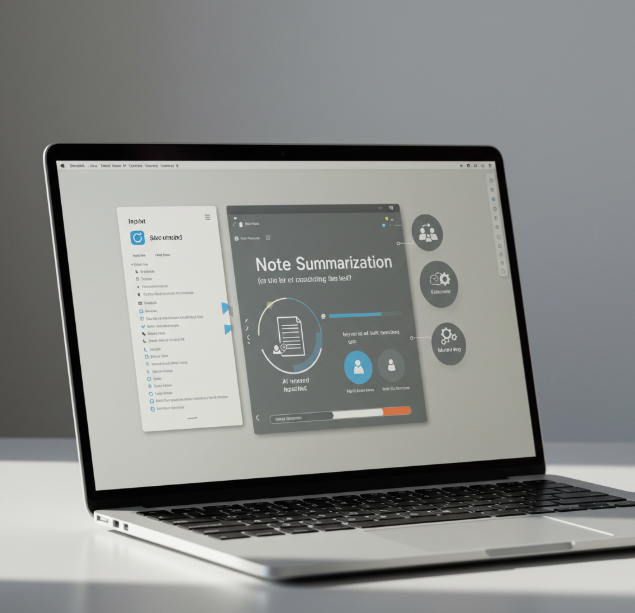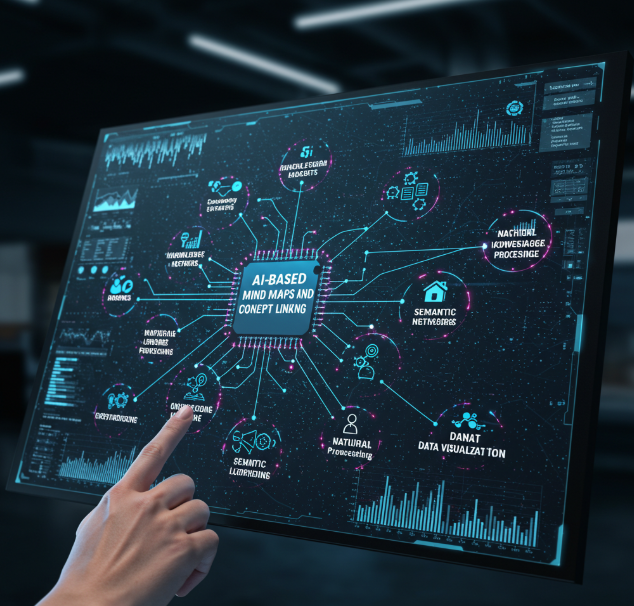AI-Powered Study Techniques for Competitive Exams
Let’s be honest: preparing for competitive exams can feel like running a marathon… blindfolded. There’s just so much to cover, and never enough time. Between balancing topics, revising, taking mock tests, and trying to not burn out, the whole process can get overwhelming. But here's some good news: you don’t have to do it all manually anymore. Artificial Intelligence (AI) has quietly entered the scene — and it's reshaping how we study.
From smart scheduling to personalized quizzes, AI tools are helping students study not just harder, but smarter. These aren't just random tech gimmicks either. Real people are using these tools every day to crack UPSC, GATE, GRE, JEE, CAT, and more. The goal of this blog is to walk you through 10 practical, AI-powered study techniques that can give you a serious edge.
We’re not throwing jargon at you — this is going to be simple, relatable, and real. So whether you're a tech-savvy student or someone who still prefers handwritten notes, there's something in here for you. Let’s get started.
1. Smart Scheduling with AI Planners
Time management is half the battle in exam prep, and AI planners like Notion AI, Reclaim.ai, and even Google Calendar with machine learning are helping students win that battle. These tools analyze your daily habits, deadlines, energy levels, and suggest optimized schedules. So instead of blindly cramming for 6 hours straight, your planner might tell you: “Hey, you retain best in the morning. Why not study Quant then?”
Another cool thing? These planners adjust on the fly. Got an unplanned family function or feel under the weather? The AI can reschedule your study blocks without you having to manually shuffle everything around. This kind of flexibility keeps the momentum going — and trust me, staying consistent is key during long prep seasons.
If you’re someone who struggles to make (and keep) study plans, give this a shot. You’ll be surprised at how freeing it feels to not worry about what to study next — because your AI assistant already figured it out.

2. Personalized Learning Paths with Adaptive Platforms
Platforms like Khan Academy, Coursera, and EdTech startups like Embibe or Oliveboard are using adaptive learning models to personalize study plans. Basically, the system watches how you answer questions — which ones you get wrong, how long you take, what kind of errors you make — and then adjusts your future content accordingly.
Think of it as having a tutor who’s watching you learn, silently taking notes, and then saying, “Okay, you're great at Algebra, but let’s work more on Geometry.” You’re not wasting time re-learning what you already know. You’re focusing exactly where you need to improve.
This kind of focused learning can shave weeks off your prep time. Plus, the progress feels more visible — and that’s super motivating. If you haven’t tried one of these platforms yet, you might be surprised at how quickly they learn about you.

3. AI-Powered Flashcards for Smarter Revision
Revision can get boring fast, especially when you’re staring at the same notes again and again. Enter AI flashcard tools like Anki (with AI add-ons), Quizlet, or Brainscape. These platforms don’t just throw random cards at you — they use spaced repetition algorithms to show you tough cards more often and easy ones less frequently.
This method is backed by science. It actually tricks your brain into remembering things long-term by spacing out review sessions. And since it’s all personalized, it feels way more effective than going through a 500-question PDF.
You can even use AI to create flashcards. Just paste in your textbook material or lecture notes, and the AI will generate questions and answers for you. It’s a huge time saver and a great way to make boring chapters a little more fun.

4. AI Tutors and Chatbots for Doubt Solving
Imagine you’re stuck on a question at 2 AM — who are you going to ask? Most likely, no one. But with tools like ChatGPT, Google's Gemini, or apps like DoubtNut, you don’t have to wait till morning anymore. These AI tutors are available anytime, and they’re surprisingly good at explaining concepts.
They break down problems step-by-step, often with simple examples. You can even ask follow-up questions like “Why did you subtract this here?” or “Is there an easier method?” and get immediate, customized answers. It’s not perfect all the time, but 90% of the time, it gets the job done.
This means less waiting, less frustration, and more confidence. And if you ever feel shy asking questions in class, AI tutors are a judgment-free zone.

5. Voice-Assisted Learning with AI
For auditory learners, voice-based learning is a game-changer. Tools like Google Assistant, Alexa, or even AI apps that read out your notes can make revision more dynamic. Want to revise while cooking or walking? Just ask, “Hey Google, quiz me on biology,” and it’s on.
Some AI tools even let you talk to them like a study buddy. You can say, “Explain Newton’s third law,” and it’ll respond conversationally, not like a robotic Wikipedia entry. This makes studying feel more interactive — and surprisingly, a lot more fun.
Also, hearing your notes aloud engages a different part of your brain, which can improve memory. It’s especially useful for memorizing formulas, definitions, or language vocab.

6. Real-Time Feedback with AI Mock Tests
Practice tests are crucial, but what makes them even better is instant feedback. AI-based platforms like Testbook, PrepInsta, or Magoosh don’t just tell you your score — they analyze your attempt. How much time did you spend on each section? Where did you hesitate? Which types of questions slowed you down?
This kind of granular feedback helps you work on accuracy and speed — two pillars of success in competitive exams. And over time, you can actually see your performance graphs improving.
These platforms also simulate real exam pressure by timing you and sometimes even randomizing question order. So when the real exam day arrives, you’re not just prepared — you’re used to the pressure.

7. Note Summarization Using AI Tools
Long lectures, endless PDFs, bulky textbooks — who has time to revise all that? Tools like Notion AI, SMMRY, or Scholarcy can summarize content into bite-sized versions. Just paste your text, and the AI gives you the key points in seconds.
This is perfect when you’re revising or creating last-minute cheat sheets. You can even ask the AI to generate questions from the summary — which doubles the benefit.
Of course, you shouldn’t rely only on summaries. But as a supplement, it’s a great way to quickly review chapters you already studied.

8. AI-Based Mind Maps and Concept Linking
Ever feel like you’re learning in pieces — like “I know the topics, but I don’t see the full picture”? AI tools like MindMeister or GitMind can help you visualize concepts and link them together using mind maps.
You can start with a main topic, like “Photosynthesis” or “Probability,” and the AI will help you branch out into subtopics, definitions, formulas, and even real-world applications. It's like laying out your entire syllabus on a whiteboard, but digitally and interactively.
This visual representation helps with long-term retention. Especially in subjects like Biology, History, or Logic, where connections matter, mind mapping with AI can help you build a stronger, more coherent understanding.

9. AI-Powered Language Support
If English isn’t your first language, studying for competitive exams in English can be an extra challenge. But now, AI translators and grammar tools like DeepL, Grammarly, and Google Lens (for textbook translation) are making life easier.
These tools help you understand complex instructions, simplify academic jargon, and even translate questions into your native language. It’s like having a translator, proofreader, and dictionary rolled into one.
And it works the other way too — if the exam requires you to write essays or answers in English, these tools can polish your grammar and sentence flow. So, language is no longer a barrier; it's just another tool in your study kit.

10. Mental Wellness and Motivation Boosters
Finally, let’s talk about your mind. Burnout is real. AI isn’t just about content and quizzes — some platforms now track your mental health signals and suggest breaks, music, or breathing exercises. Think of Calm, Headspace, or even fitness apps with AI-backed mental wellness features.
Some AI systems can even detect stress through typing patterns or webcam analysis (yes, that’s real!) and suggest when to pause or switch topics. It’s not creepy — it’s helpful. Because no one talks about this enough: mental health is key to doing well in exams.

AI isn’t replacing hard work — it’s just making it smarter, faster, and way more effective. Whether you're prepping for IIT-JEE, UPSC, NEET, CAT, or any competitive exam, these AI-powered techniques can be your secret weapon. You don’t have to use all 10 — even 2 or 3 of them can make a massive difference in your prep journey.
At the end of the day, it’s still you who has to put in the effort. But having AI as your study buddy? That’s like having a personalized coach, tutor, planner, and cheerleader — all rolled into one.